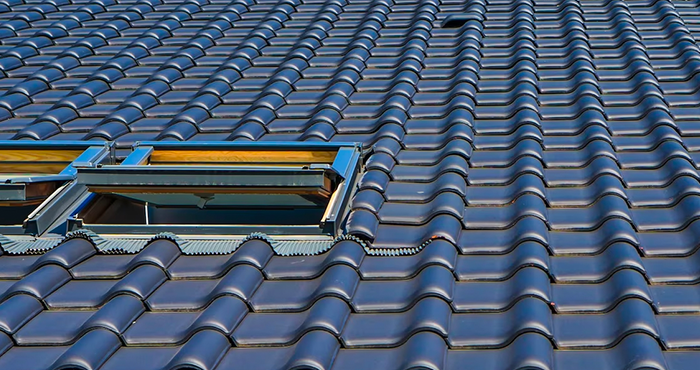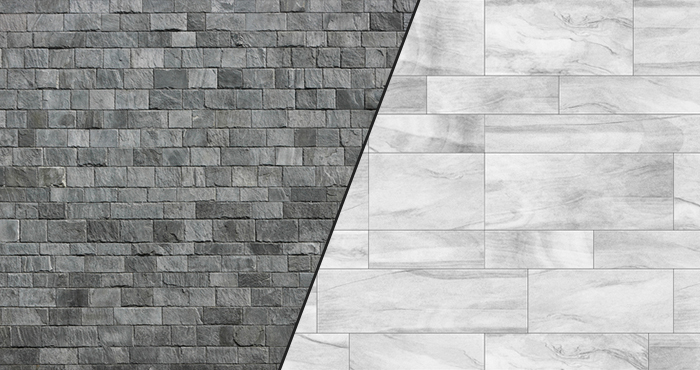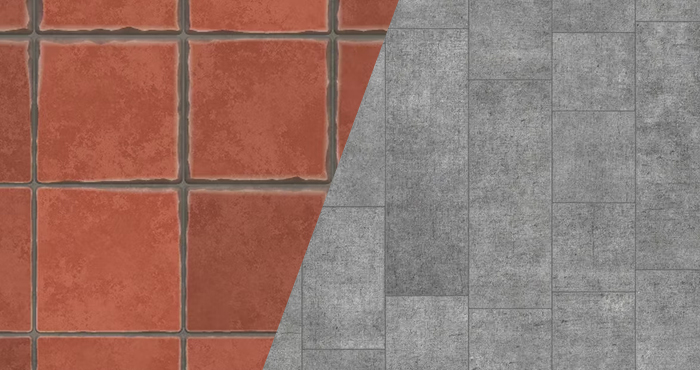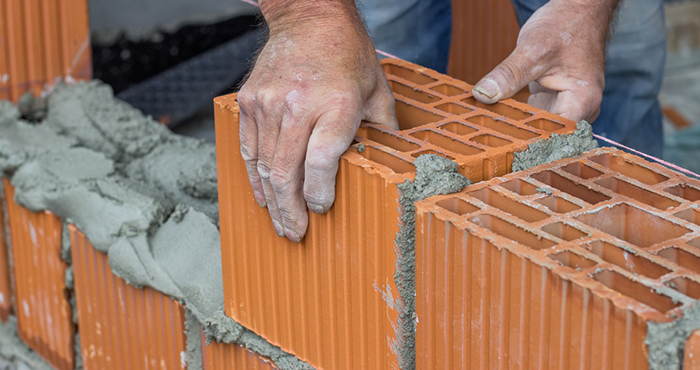Choosing the right roofing material is an important decision for any homeowner. Among the multiple options available, roofing tiles stand out for their durability, aesthetic appeal, and versatility. But what exactly are roofing tiles, and why do they deserve your attention? In this guide, we will explore the world of roofing tiles, exploring the different types, their benefits, and the pros and cons. So, let’s get started.
What Are Roofing Tiles?
Roofing tiles are designed to keep out rain and come in various materials, including clay, concrete, metal, and even solar panels. They are prized for their longevity and ability to add character and style to any home.
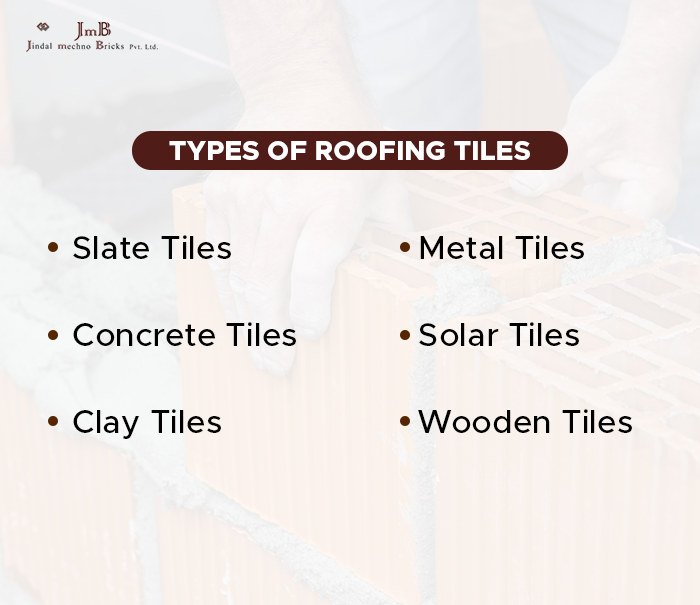
Types of Roofing Tiles
Roof tiles come in various materials, each with its unique benefits and aesthetic appeal. Let’s explore the different kinds of roofing tiles available:
Slate Tiles: Slate tiles are known for their natural beauty and longevity. They can last over a century if properly maintained. Slate is fire-resistant and can withstand harsh weather conditions, making it a durable choice for roofing.
Metal Tiles: Metal tiles offer a modern look with great durability. They are lightweight, making them easy to install, and are resistant to severe weather. Metal tiles can also reflect sunlight, helping to keep homes cooler in warm climates.
Concrete Tiles: Concrete tiles are a versatile option that can mimic the appearance of other materials like clay or slate. They are durable and offer good resistance to fire and wind. Concrete tiles are also affordable, making them a popular choice among homeowners.
Solar Tiles: Solar tiles are a revolutionary type of roofing tile that can generate electricity for your home. They blend in with traditional roofing tiles while providing the added benefit of energy savings. Solar tiles are an excellent choice for eco-conscious homeowners.
Clay Tiles: Clay roof tiles are classic and timeless. They are known for their distinctive terracotta color and can last for decades. Clay tiles are excellent at insulating homes from heat and are highly resistant to fire.
Wooden Tiles: Wooden tiles, or shakes, add a rustic charm to any home. They are made from natural wood like cedar, which can provide insulation and stand up to strong winds. Wooden tiles require regular maintenance to prevent decay and damage from insects.
Pros and Cons of Tile Roofing
When considering tile roofing for your home, it is essential to weigh the advantages and disadvantages to make an informed decision. Tile roofs offer a unique blend of durability, aesthetics, and energy efficiency but also come with certain considerations. Here is a closer look at the benefits of tile roofing:
Pros of Tile Roofing
Longevity: One of the most significant benefits of tile roofing is its lifespan. Materials like clay, concrete, and slate can last 50 years or more with proper maintenance, making them a long-term investment for homeowners.
Aesthetic Appeal: The brick tiles for roof are known for their beauty and can significantly enhance the curb appeal of your home. With a variety of colors, shapes, and styles available, you can choose a look that complements your home’s architecture and personal taste.
Energy Efficiency: Tiles have excellent insulating properties, helping to maintain comfortable indoor temperatures throughout the year. This can lead to lower energy costs, as your home will require less heating in the winter and cooling in the summer.
Fire Resistance: Tile roofs are non-combustible, offering an added layer of protection against fire. This is particularly beneficial in areas prone to wildfires or for homes with external heating units.
Eco-Friendly: Many tile materials are made from natural or recycled materials, making them a sustainable choice for roofing. They can also be recycled at the end of their life, reducing landfill waste.
Low Maintenance: Compared to other roofing materials, tile roofs require minimal upkeep. They are resistant to rot, decay, and insect damage, which contributes to their longevity and durability.
Cons of Tile Roofing
High Initial Cost: The upfront cost of tile roofing can be higher than other roofing options. The materials themselves, along with the specialized installation required, contribute to the overall expense.
Weight: Tiles are heavier than most other roofing materials. Before installation, it may be necessary to reinforce the roof structure to support the additional weight, which can add to the cost and complexity of the project.
Fragility: While tile roofs are durable against weather and fire, they can be brittle and break if walked on incorrectly. Repairing or replacing broken tiles requires care and should be done by professionals to avoid further damage.
Complex Installation: Installing a tile roof is not a DIY project. It requires skilled professionals familiar with the specific techniques needed to ensure proper installation, which can add to the overall cost.
Not Suitable for All Roof Slopes: Tile roofing may not be suitable for roofs with a low slope, as the tiles require a certain angle to provide optimal water drainage and aeration.
Conclusion
Choosing the right roofing material is a decision that affects the beauty, durability, and energy efficiency of your home. Tile roofing offers a blend of aesthetic appeal, longevity, and practical benefits that are hard to match. Despite the higher initial cost and weight considerations, the advantages of tile roofing make it a worthwhile investment for many homeowners. With Jindal Mechno Bricks, you have a partner committed to providing the best quality roofing tiles, ensuring that your home not only looks great but is also protected for years to come. Explore our range and take the first step towards a perfect roof today.
FAQs
Can tile roofs withstand heavy weather conditions?
Ans. Yes, tile roofs are incredibly durable and can withstand harsh weather conditions, including heavy rains, high winds, and even hail. Their robust nature makes them an excellent choice for areas prone to extreme weather.
Are tile roofs more expensive than other roofing options?
Ans. Initially, tile roofs may be more costly than some other roofing materials due to the quality of materials and the installation process. However, their longevity and low maintenance needs can make them more cost-effective in the long run.
Can I walk on my tile roof without damaging it?
Ans. While tile roofs are durable, they can be damaged under weight. It’s best to avoid walking on them or to do so very carefully and ideally under the guidance of a professional.
How often do tile roofs need maintenance?
Ans. Tile roofs require relatively low maintenance but should be inspected regularly for any broken tiles or debris buildup. An annual inspection by a professional can help ensure your roof remains in top condition.


